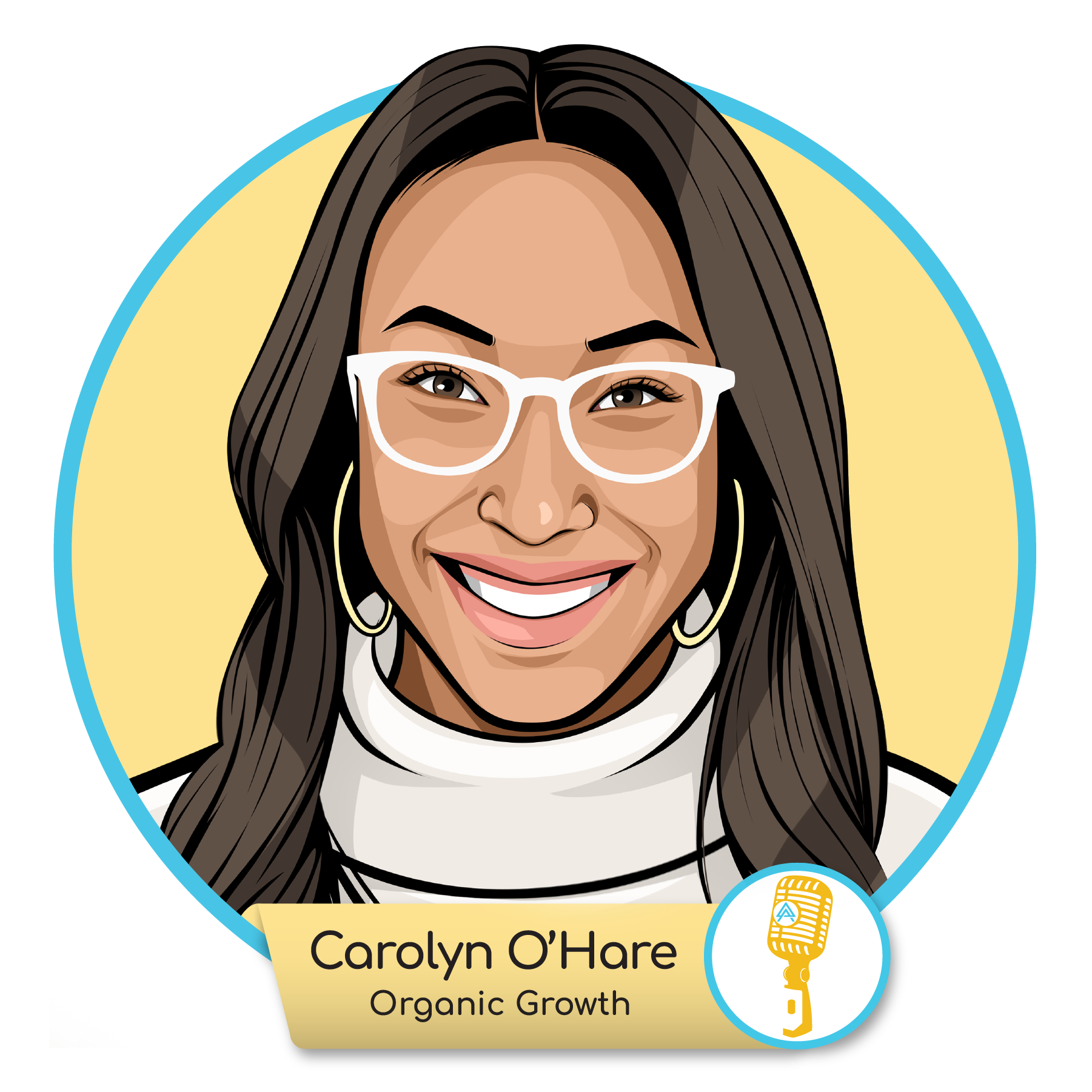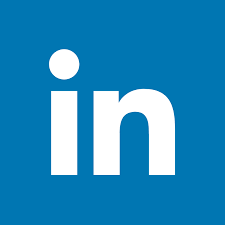Startups and corporates need each other. But most partnerships fall apart. In this episode, Ian Bergman talks with Noga Tal about what actually makes these relationships work.

AlchemistX: Innovators Inside
E.37 - Carolyn O'Hare: Organic Growth
Published on
"Try your best to drop ego early and be ready to have all of your preconceived notions and all of your ideas questioned constantly and be willing to listen to the questions to find which ones are worth keeping and worth throwing away." - Carolyn O'Hare
Show Notes
Rachel Chalmers:
Today. I'm so excited to welcome Carolyn O'Hare to the show. Carolyn has over a decade of experience as a supply chain and operations expert in the consumer packaged goods industry. Formerly running operations at brands like Fiji Water and Beyond Meat, she's currently the co-founder and Chief Operating Officer at Tiny Organics, an early childhood nutrition company focused on shaping baby and toddler palates to prefer vegetables. Carolyn has been recognized by Partnership for a Healthier America as a member of their Shaping Early Palates Council and is a founding partner of the Veggies Early and Often campaign in 2022. She partnered with LinkedIn for their Welcome Professional campaign and was featured in their cross-platform content about the evolving definition of professionalism. She has a passion for mentoring entrepreneurs and serves as a mentor with Santander Bank's Cultivate Small Business Program supporting women, minority and immigrant owned early stage food businesses. Carolyn, it is so great to have you on the show.
Carolyn O’Hare:
Thank you, Rachel. I'm excited to be here.
Rachel Chalmers:
Tell us the story of how you took the leap from large corporate operations to co-founding a startup. Where did you find the courage?
Carolyn O’Hare:
I appreciate you referring to it as courage. And where it came from is I actually had my very first job after college at Fiji Water. I answered the phone if you called the phone number on the back of the bottle, if you can believe it. And it was an excellent education in customer service, which is extremely important in any consumer goods industry and overall just a great education on how an organization functions all together. So being in the supply chain, you really gain an understanding by working with every department in an organization. You work with the marketing department to implement new branding on packaging; you work with the finance department on managing cost of goods sold, and [I really] have felt like I built a core kind of fundamental understanding of how every person is critical to how an organization works.
And from there I found my way to Beyond Meat. This was in earlier days than where they are now kind of in that scaling period for a startup. And this was also an education, this time in a venture-backed startup. We went through all of those startup experiences you have, all of the keywords about wearing different hats, doing things outside of your job description, being worried about where money is coming from, and kind of all these experiences together really gave me a strong foundation for building out my own business with Tiny Organics. I found myself a niche in natural, organic, plant-based food and beverage, and I have a really strong passion for health and wellness that has manifested itself as Tiny Organics, where we make baby and toddler foods so that kids can learn how to love vegetables and really be set up for their future.
Rachel Chalmers:
Yeah, it's so incredibly important. You might be pleased to hear that my teenagers have really embraced Beyond Meat. They really love it.
I loved what you said about starting a customer service, and then working your way up into operations. We've taken on a few more operational hires in Alchemist, and it's been fascinating watching them figure out exactly how the processes in the organization work, because I've always been line-of-business. I've been an analyst or an investor, I'm always front of house and I joke that if something's not in my line of sight, I forget about it. So I depend on really strong operational people to put the important things in my line of sight so I can execute. Operations is such a different mindset, and it really is that systems thinking that's so important and foundational.
Carolyn O’Hare:
It is, yes. And where I really find that I can best contribute throughout my career in operations is if you don't hear from me, that usually means there's no problem. And so I like to just you know, my goal is to make things function as seamlessly as possible. It never works out that way. But there's an intention to thinking about how every action you do affects the rest of your organization. And that's where I think that kind of foundational supply chain background has really helped me in my life.
Rachel Chalmers:
I did want to come back to the transition from Beyond to Tiny Organics. Having seen how challenging it is to raise VC funding. Wasn't that daunting when you thought about such a big career change?
Carolyn O’Hare:
It sure was. And it still is. Honestly, I feel very fortunate that I have two co-founders who together, you know, kind of helped spread out the fear a little bit better across all of us. And we were really able to work together. And we have a (together) really strong kind of founding story that we were able to share with investors. And each had our own skill set areas. Mine really was with food and an operational background. So because I had had those existing more corporate and scaling startup experiences, I have been able to sell that to investors quite well.
Rachel Chalmers:
That's a perfect example of what we often teach our startups, which is that the co-founder relationship is the first sale. It's incredibly important to get that mix of capabilities into the room so that you will complement each other as a founding team.
Carolyn O’Hare:
Absolutely.
Rachel Chalmers:
Can you tell our listeners a little more about tiny organics? What are you working on now?
Carolyn O’Hare:
Yes, we make baby and toddler foods, and the real differentiator (and what we're trying to educate consumers on) is that our product is not pureed, it's purely textured. The kind of baby food, as we all know it now in grocery stores is an invented category. There's actually no scientific reason that babies need to eat like this. And historically, and in other cultures and countries as well, babies eat much more similarly to the rest of the family. So we make foods that really contribute to this kind of lifestyle. And what we see is a trend that will continue into the future. It's foods that are whole, veggie focused, and really savory-forward to teach children at the earliest age how to have a positive relationship with vegetables. And this is going to lead to a better relationship with food and with your own eating habits later in life. Eating is such a personal thing and also really universal, of course, for everyone. And there are a lot of developmental values as well that come into eating this way. It helps children learn how to pick up food with their hands, develop their jaw and understand when they're hungry versus when they're full. This can lead to, you know, kind of help with different health issues that we adults are facing later in life.
Rachel Chalmers:
We are so acculturated to ignore the signals our body is telling us, including satiation, and it's really important to inculcate that early. I was definitely one of those moms who was always feeding the kids stuff off my plate and they did like vegetables. But I'm a little chagrined to admit it's because we serve our vegetables drenched in European salted butter. So what's your secret sauce?
Carolyn O’Hare:
What's actually been interesting is over this journey, of course, I have eaten all of our food and I eat it all the time. But in the earliest days of product testing, my own palate was giving feedback that the products weren't sweet enough or they weren't salty enough. But we don't add any sugar, we don't add any salt. And over time, my palate has actually adapted a little bit because we are so inundated with those really salty and really sweet flavors that I have actually been able as an adult to sort of relearn how to just appreciate the intrinsic value and taste that nature's candy has to offer.
Rachel Chalmers:
What advice and encouragement would you give to anyone thinking of founding a startup of their own?
Carolyn O’Hare:
Oh, there's so much I could say. If I were to find some advice to give. I think a general piece of advice would be to try your best to drop ego early and be ready to have all of your preconceived notions and all of your ideas questioned constantly and be willing to listen to the questions to find which ones are worth keeping and worth throwing away. The kind of best thing – that best, most contributory to the business that we've heard is directly from our customers. Let your customers tell you what is right versus just kind of depending on what you previously perceived. And really the consumers and the market will tell you better than investors or stores will tell you. I mentioned customer service early and that's a really key part of our business. I think it's very much underrated how valuable that can be.
Rachel Chalmers:
We do a lot of coaching of customer discovery techniques, and one thing I tell all of the founders is that it never ends. It just turns into customer development. And that tight feedback loop between what people think of your product and how you think about the future of the product is essential to all kinds of business growth.
Carolyn O’Hare:
I love that you say to continue doing that throughout the journey because it's a little bit easier at the beginning and easy to let it trail off later. But the consumer feedback, it truly is constant, and I don't think your product is ever too good to be improved upon based on consumer feedback.
Rachel Chalmers:
And your point about ego depth is a really deep one as well. I know that as an investor I'm always looking for low-ego, high-information entrepreneurs, and the experience of getting to that place is not comfortable but it is really healthy.
Carolyn O’Hare:
It is we try to really just let data indicate what your decisions are and it should be leading you to the right answer.
Rachel Chalmers:
But you have to put your preconceptions aside to get there.
Carolyn O’Hare:
And as far as encouragement, I can also just share that no founder knows all of the answers. There's no formula to follow, otherwise we would all be following it. The journey is really where the most impressive part is, rather than where you get to.
Rachel Chalmers:
Startups really are science experiments. We're trying to expand the field of human knowledge. It's like doing a PhD. You've got to push out human knowledge just that little bit, which means by definition, your experience may rhyme with somebody else's, but it won't be identical to anyone else's.
Carolyn When you look back on your career today, what are you proudest of?
Carolyn O’Hare:
Speaking of fundraising, I think we… I'm really impressed with the fundraising that we've done to date. We closed a Series A last year of $11 million, and that $11 million is part of just 2% of venture capital that goes to female founders. So I'm really proud of myself and the team for getting there. And we don't want to be a small percentage, right? We want to get much closer to equal. So it's just part of the solution to support other female founders as well. And it's been really exciting just to have that proof point by investors that what we're doing is making a difference and really having an impact.
Rachel Chalmers:
You should be very proud. And you know, this is something I've been working on for a long time as well. It's frustrating because five years ago the number was 4%. It's actually declining. One of the things I think we're going to need to do, and this is part of what I've been doing, is create our own independent funding sources. So we need to help people like you become billionaires so that you can become an angel and fund future women founders in their turn.
Carolyn O’Hare:
Absolutely. As soon as this tiny organics sells, I absolutely would want to reinvest in female founders. And at least right now, I'm able to do that through mentorship of other women-owned startups.
Rachel Chalmers:
If you had one do over, what would you do differently?
Carolyn O’Hare:
If I had one do over, I would not underestimate how, constantly, you need to educate consumers about what your product is. Whatever we think we know as founders, it needs to be able to be dissected and understood by the market and really made palatable for people. So that's especially hard when you're doing anything innovative or different than what is currently on the market. We're offering baby food that is textured rather than pureed, and it's a foreign concept to a lot of people. So we are constantly finding new ways to educate consumers about what else is out there, that we are offering something innovative that can truly help your child in the long run.
Rachel Chalmers:
The market is such a cacophony and finding that story that breaks through the noise is so important. How would you distill all of this incredibly diverse experience into, say, two or three lessons for our listeners?
Carolyn O’Hare:
One of my favorite lessons would be in customer service. And if I could do it for all listeners, there's no better experience than hands-on experience. Almost every person in our organization has done customer service, has responded to emails, has reviewed Instagram comments and direct messages, and everyone in the organization hears what our customers say so that they can take that feedback into whatever department they're in.
I had another lesson: I would have everyone come to our kitchen and pack boxes, look at the work that actually goes into manufacturing, the product that we make. It's easy to be so separated from the manufacturing and the office. So our entire team has been in our manufacturing facility, put their hair nets on, put their gloves on, and packed cups and boxes and moved pallets around so that you really get the experience of a handmade product. You kind of see where what you're selling is coming from.
And the lesson that I wish that I was able to have: If I could have everyone sit in on a board meeting. It's a really invaluable experience. I remember our first board meeting when we had no idea what we were doing. Didn't know how to present. And the progress that we've made since then has really, really been impressive, I think. But until you do it, you have no idea what that experience is like. We try to share as much as we can with the rest of our team, but our board meetings just they really have an understanding of what's involved in that relationship with the board. Kind of a different sort of feedback loop that we're getting as well and how we implement that into our day-to-day and the organization.
Rachel Chalmers:
That's a best practice I've seen in some highly successful startups. Obviously you can't share the board slides that are about individual people's compensation, but the really good start ups culturally that I've seen after a board meeting will have an all hands and present everything else in the board meeting and explain why they're having that particular conversation with the board.
Carolyn O’Hare:
Yep, that really resonates with our team as well, that they're hearing that these decisions have been come to after deep conversation with investors who really care about what we're doing and have great insights and feedback for us and are speaking from an experience of portfolio companies that can be really helpful to what we're doing. And it just creates a different sense of purpose in all of the action steps that we take afterwards.
Rachel Chalmers:
I think it builds a high trust environment where people feel empowered to act with autonomy and agency and at the same time be aligned with the corporate goals.
Carolyn O’Hare:
And I'll also add on the, you know, to get that female founders percentage of VC capital up, we are not by design but have a majority of female employees and I am excited to be able to teach them what's involved in being a female founder, having an early education on board relationships and investor relations and fundraising.
Rachel Chalmers:
One thing I've seen is that there are a handful of companies that have actually created a generation of women entrepreneurs. Linden Lab was one, although it was founded by a man. I track four or five companies that were founded by women who had worked at Linden, and some of them enormously successful. But just being able to create that crucible where people feel that they can expand their skills and aspire to more than the generation before them is incredibly leveraged.
Carolyn O’Hare:
Definitely. We're just trying to everything that we learn, we want to be able to pass on to other female founders.
Rachel Chalmers:
And with all of that work in mind, how on earth do you avoid burnout? Do you avoid burnout?
Carolyn O’Hare:
I try my best. It's hard for everyone for me to avoid burnout. It really comes down to spending time with my family. We are a baby food company, so of course the needs of families are really core to the brand and so we're sensitive to the needs of everyone's families. And those families can come in all shapes and sizes, right? For me, it's my husband and my stepson who's six years old. And we really try to just enjoy spending time together that is separate from work. It doesn't always work out that way, especially in a partial work-from-home environment where sometimes we're all all here in the house doing our own separate calls or different things. But we try our best to have a clear cut off time at nighttime where everyone's done with their work calls and we really spend time together as a family.
Rachel Chalmers:
And one thing I've really appreciated about the last couple of years, with all of the difficulty that has come with them, is the opportunity just to have those moments in between calls. You know, being able to have lunch with my husband has been real, a real pleasure of an otherwise very challenging time.
Carolyn O’Hare:
It has. And what's kind of fun is that any time I'm looking to vent or I need an email proofread by someone else or just a sanity check over something I'm doing, there's someone who is not a colleague who's nearby that I can bounce ideas off of.
Rachel Chalmers:
Yeah, we know so much more about each other's jobs, so it's been really interesting.
What is the best way for our listeners to connect or follow your work other than switching to an old-timey organics diet?
Carolyn O’Hare:
I will say that if you know any babies, of course send them to tinyorganics.com and it is great for adults to eat as well. That's during my work-from-home times, I eat tiny organics every single day for lunch. A couple more cups than a baby would do.
Rachel Chalmers:
And I do have a number of baby friends, so I will pass along the recommendation.
Carolyn O’Hare:
Great. And I would also recommend following the kind of action steps that are happening in public policy around childhood nutrition, if you can. We're part of a great organization called Partnership for a Healthier America and part of a campaign called Veggies Early and Often. And it's a cohort, really, of competitors in our space who have all gotten together on this mission to encourage consumption of vegetables early and often. So introducing them at the earliest days when babies are open to new flavors. And this work has really progressed. You know, it's kind of interesting when competitors can work together, but we all have a common goal and all ships rise mentality. We're all working on the same mission of getting kids to be more healthy and allowing parents the opportunity to help them get there.
Rachel Chalmers:
A Thought Experiment for the next five years. You are president of the United Federation of Planets. You have broad executive powers. You can make everything in your industry go the way you think it should go. What does the world look like in five year’s time?
Carolyn O’Hare:
I have several years of experience in consumer packaged goods and I believe the world is moving towards minimally-processed whole, mostly plant-like eating. Alternatives to less healthy foods are more part of the solution than they are part of the problem, but not the whole solution. And really, the solution is finding accessible ways for people to eat healthier. When I started Tiny Organics, I was living in New York City, where you can get a pizza delivered to your house in the middle of the night. You should have access to whatever you want. But living in Harlem, my nearest grocery store, I remember going as soon as I moved and there was one potato, which was a nondescript white potato. No sweet potatoes, no red potatoes. And it's a community that is a food desert that doesn't have the option to eat healthy. And the nearest natural grocery store, for example, is a 20 minute walk away. It's out of reach for a lot of people. And we have a real accessibility problem to healthy food in America, which is part of a broken food system that we have. So really for Tiny Organics, the kind of dream is that we eventually are on WIC. 50% of babies in America are fed on WIC and to just make our whole vegetables and healthy eating accessible not just to people on the coasts but around the country.
Rachel Chalmers:
For listeners who may not know WIC is a federal government program – Women, Infants and Children – that subsidizes food for households that may not have enough money to otherwise feed their children.
We do have glimmers of hope, though. I mean, one of the enduring joys of living in San Francisco is that I'm up the hill from the oldest farmer's market in the country. I'm 10 minutes walk from one of the oldest grocery food co-ops. And this is what a food web should be like. It's easy for me to eat local except for coffee and tea. I think almost everything I eat comes from within 100 miles of where I live. If we could build that kind of food security around every major metro, I think we would be living in a much more wonderful country.
Carolyn O’Hare:
I love that. That's the dream. And also really embracing eating seasonally. We've gotten used to having everything that we want all the time, but there's a time of the year when strawberries are just extra delicious and we should enjoy those strawberries when we can. And then in the winter, enjoy butternut squash and other vegetables and just kind of appreciate that nature has given us these menus for our year that we can enjoy.
Rachel Chalmers:
And it makes the first day there are white nectarines at the farmer's market, the most wonderful day of the year. The anticipation and the build up that really makes that taste so incredible.
Carolyn O’Hare:
Absolutely.
Rachel Chalmers:
Is there anything else I should have asked you?
Carolyn O’Hare:
You know, I will say that my startup secret weapon as a founder really has been my family. My kid is the taste tester on every new product. He's a guinea pig of everything we do so that we can make sure it's kid approved. And as we were saying, my husband proofreads my emails. I wouldn't be able to do it without them and I wouldn't want to do it without them. So at the end of the day, they're my “why” for why I'm building Tiny.
Rachel Chalmers:
Shout out to our home support systems without whom nothing cool would ever happen.
Carolyn O’Hare:
Definitely.
Rachel Chalmers:
Carolyn, it's been an absolute delight to have you on the show. Thank you so much for taking the time today.
Carolyn O’Hare:
Thank you so much. I really appreciate it.
References
Tiny Organics Startup Co-founded by Carolyn O’Hare where she is the COO
Partnership for a Healthier America Where Carolyn is a member of the Shaping Early Palates Council
Veggies Early and Often Where Carolyn is a founding partner
Santander Bank's Cultivate Small Business Program Where Carolyn is a mentor
Beyond Meat Where Carolyn worked after her time at Fiji Water
Intro and Outromusic composed by: www.PatrickSimpsonmusic.com
Recent Episodes
.jpg?width=767&name=IIS7%20SQ%20Thumbnail%20(1).jpg)
In this episode, Marcelo Calbucci breaks down the innovation habits that shaped his career at Microsoft, Amazon, and across six startups. He explains why small, fast iterations beat big plans, how narrative-driven strategy unlocks clarity, and why today’s founders should embrace niche, hyper-specialized solutions.

In this episode of Innovators Inside, Hong Kong–raised entrepreneur and two-time TEDx speaker Yunsu Tang shares her journey from a stable corporate career in Hong Kong and Shanghai to rebuilding in London’s startup ecosystem.
.svg.png)







